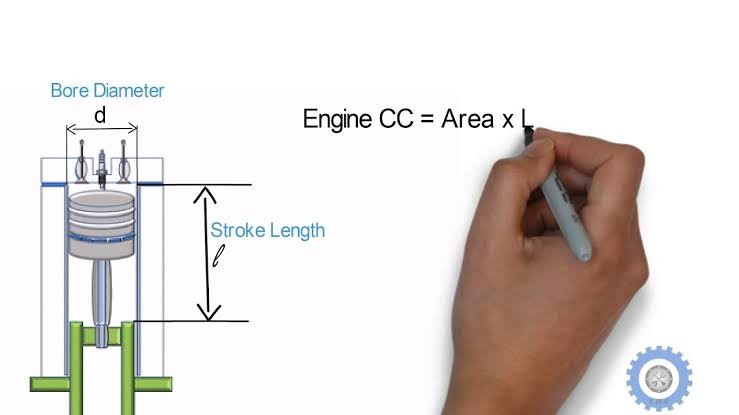CC of an engine is a measure of the volume of the cylinders in the engine. It indicates how much air-fuel mixture can be accommodated in the cylinders for combustion. The more CC an engine has, the more fuel it can burn and the more power it can produce.
If you are interested in cars and bikes, you may have come across the term CC or cubic centimeter. But what does it mean and how is it related to engine performance? In this article, we will explain what CC of an engine is, how to calculate it, and how it affects the power and efficiency of your vehicle.
What is CC of an Engine?
CC of an engine is a measure of the volume of the cylinders in the engine. It indicates how much air-fuel mixture can be accommodated in the cylinders for combustion. The more CC an engine has, the more fuel it can burn and the more power it can produce.
The term CC is derived from the unit of volume, cubic centimeter, which is equal to one milliliter. One liter is equal to 1000 cubic centimeters, so a 1.0 L engine has a CC of 1000. Similarly, a 2.0 L engine has a CC of 2000, a 3.7 L engine has a CC of 3700, and so on.
CC of an engine is also known as displacement or swept volume. It is one of the factors that determine the size and type of an engine. For example, a small car may have a 1.2 L or 1200 CC engine, while a large SUV may have a 5.0 L or 5000 CC engine. A motorcycle may have a 150 CC or 180 CC engine, while a sports bike may have a 1000 CC or 1200 CC engine.
How to Calculate CC of an Engine?
To calculate the CC of an engine, you need to know two dimensions of the cylinders: the bore and the stroke. The bore is the diameter of the cylinder, and the stroke is the distance that the piston travels from top to bottom in one cycle. The formula for calculating the CC of one cylinder is:
CC = π/4 x (bore)² x (stroke)
To get the total CC of the engine, you need to multiply the CC of one cylinder by the number of cylinders in the engine. For example, if an engine has four cylinders with a bore of 8 cm and a stroke of 9 cm, then:
CC = π/4 x (8)² x (9) x 4
CC = 1810.6
Therefore, the engine has a CC of 1810.6 or approximately 1.8 L.
How Does CC Affect Engine Performance?
CC of an engine is not the only factor that affects its performance, but it does have a significant impact on it. Generally speaking, the higher the CC of an engine, the more power and torque it can produce. This is because a larger volume of air-fuel mixture can be burned in each cycle, resulting in more force on the pistons and crankshaft.
However, this does not mean that a higher CC always means better performance. There are other factors that influence how efficiently an engine converts fuel into power, such as compression ratio, valve timing, fuel injection system, turbocharging or supercharging, cooling system, exhaust system, and so on. These factors can make a big difference in how much power an engine can produce from a given amount of fuel.
For example, a Nissan GT-R has a 3.8 L or 3800 CC twin-turbo V6 engine that produces 480 horsepower and 588 Nm of torque. A Ford Mustang has a 5.0 L or 5000 CC V8 engine that produces 300 horsepower and 434 Nm of torque. Despite having a larger CC, the Mustang's engine produces less power and torque than the GT-R's engine because it lacks turbocharging and other advanced features that enhance its performance.
Therefore, when comparing engines based on their CC, you should also consider other aspects that affect their performance and efficiency. You should also look at other indicators such as horsepower, torque, fuel consumption, emissions, reliability, and maintenance costs.
Conclusion
CC of an engine is a measure of the volume of the cylinders in the engine. It indicates how much air-fuel mixture can be accommodated in the cylinders for combustion. The more CC an engine has, the more fuel it can burn and the more power it can produce.
However, CC of an engine is not the only factor that affects its performance. There are other factors that influence how efficiently an engine converts fuel into power, such as compression ratio, valve timing, fuel injection system, turbocharging or supercharging, cooling system, exhaust system, and so on.
To calculate the CC of an engine, you need to know two dimensions of the cylinders: the bore and the stroke. The formula for calculating the CC of one cylinder is:
CC = π/4 x (bore)² x (stroke)
To get the total CC of the engine, you need to multiply the CC of one cylinder by the number of cylinders in the engine.
When comparing engines based on their CC, you should also consider other aspects that affect their performance and efficiency. You should also look at other indicators such as horsepower, torque, fuel consumption, emissions, reliability, and maintenance costs.

Comments (0)
Please login to join the discussion
Be the first to comment on this article!
Share your thoughts and start the discussion